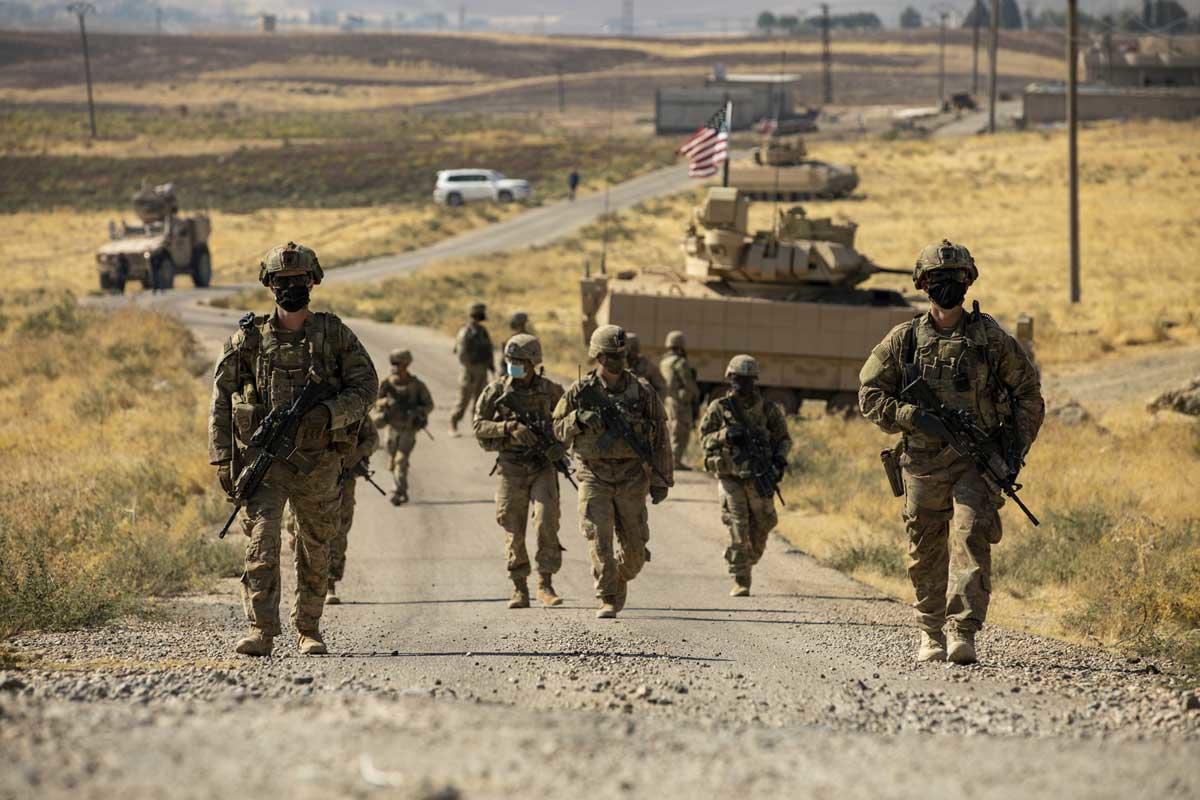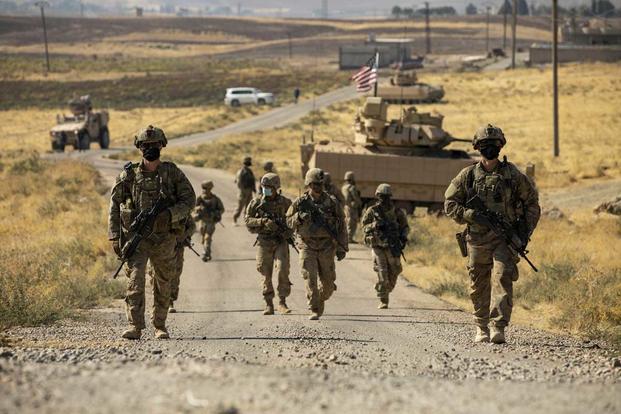

U.S. strikes this week against Iran-backed militias in Syria show that the United States will respond to attacks against its troops regardless of ongoing negotiations on reviving a nuclear agreement with Iran, a top Pentagon official said Wednesday.
“What the strikes last night illustrated is that our commitment to push back against Iran’s support for terrorism, militancy and the threats that they engage in against our people in the region or elsewhere are not linked to wherever we end up on the nuclear deal,” Colin Kahl, the under secretary of defense for policy, told reporters during a briefing.
Kahl’s comments came after U.S. Central Command announced it conducted overnight airstrikes in Deir ez-Zor in eastern Syria against facilities used by militia associated with Iran’s Islamic Revolutionary Guard Corps.
Read Next: Army Having Trouble Finding Places for Evacuated Troops to Live at Fort Bragg
The strikes were in response to “attacks like the ones on August 15 against U.S. personnel by Iran-backed groups,” the Central Command statement said. On Aug. 15, multiple drones attacked a compound used by U.S. forces in eastern Syria, but no casualties were reported.
About 900 U.S. troops are in Syria on a mission of training allied local forces fighting ISIS.
As Kahl was speaking Wednesday, there were also reports of an exchange of fire involving U.S. troops in Syria. Kahl said he was aware of those reports, but had no more details.
The Aug. 15 incident was only the latest attack against U.S. forces in Syria suspected to be carried out by forces aligned with Iran, including one last October that Central Command described as a “deliberate and coordinated” drone attack.
The United States decided to respond now for several reasons, Kahl said Wednesday.
“Part of it’s an accumulation,” he said. “We don’t want Iran to draw the wrong conclusion that they can continue just doing this and get away with it.”
Additionally, the United States was concerned about the nature of the Aug. 15 attack because it was coordinated against two facilities at the same time, he said. And officials were able to have Iran “dead to rights” on attribution for the Aug. 15 attack because drone parts collected from the incident can be traced back to Tehran, he added.
But the timing of the U.S. strikes still raised eyebrows because they came as the United States and Iran are reportedly nearing an agreement to revive the nuclear deal known as the Joint Comprehensive Plan of Action, or JCPOA.
The deal was originally signed during the Obama administration to restrict Iran’s nuclear program in exchange for sanctions relief for Tehran. But former President Donald Trump withdrew the United States from the deal in 2018, and Iran subsequently ramped its nuclear program back up.
President Joe Biden came into office promising to negotiate a “longer and stronger” nuclear deal, but has struggled to revive even the Obama-era deal amid Iranian demands for greater sanctions relief and fierce criticism from Republicans in the United States who argue, in part, that Iran could use funding from sanctions relief to step up attacks on U.S. troops in the region.
“Whether the JCPOA is reborn or not, it actually has nothing to do with our willingness and resolve to defend ourselves,” Kahl stressed Wednesday. “And I think the strike last night was a pretty clear communication to the Iranians that these things are on different tracks.”
— Rebecca Kheel can be reached at [email protected]. Follow her on Twitter @reporterkheel.
Related: Drone Attack Targets US Base in Syria, Officials Say
© Copyright 2022 Military.com. All rights reserved. This material may not be published, broadcast, rewritten or redistributed.
